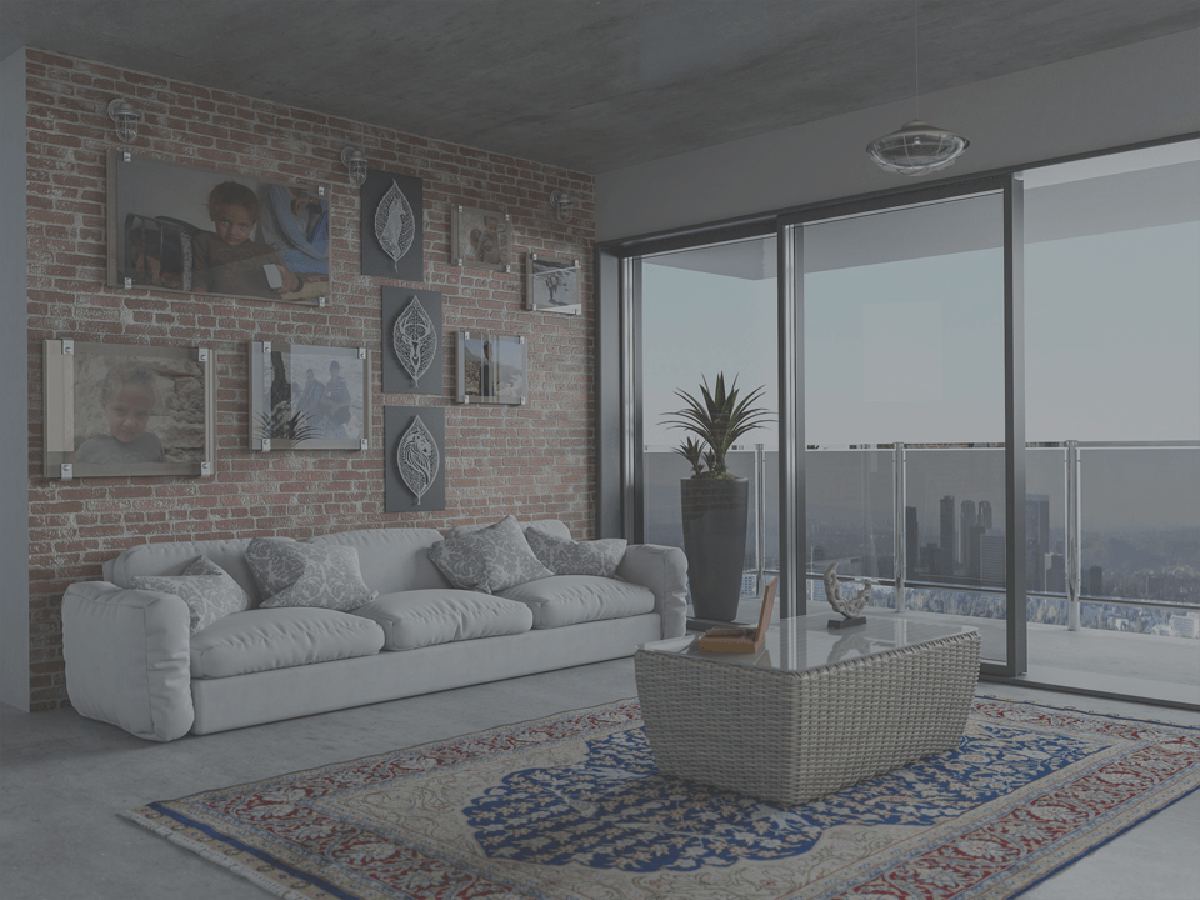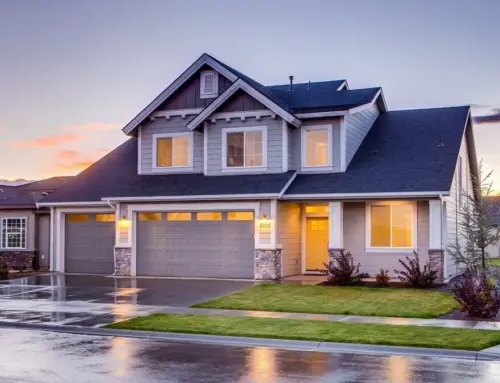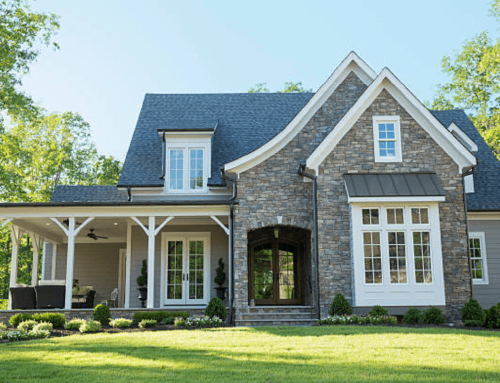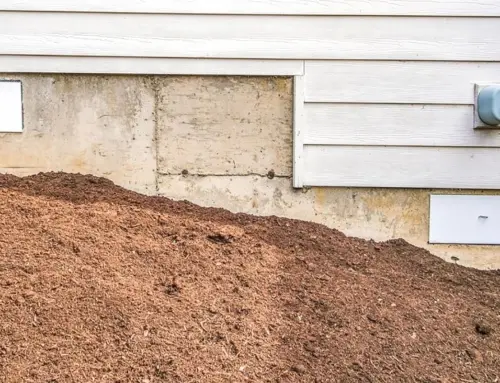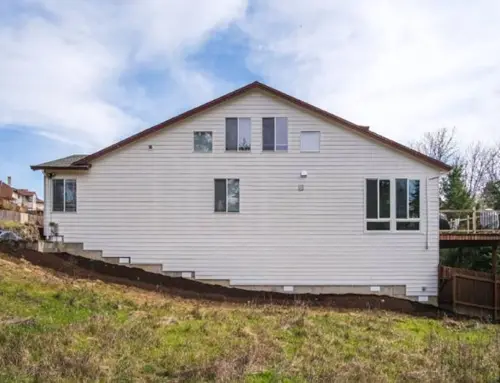Achieving peace and quiet at home is not always easy. While we want our homes to be a safe haven for rest and relaxation from the outside world, sometimes it’s tough to keep the outside noise from following us into our homes. Between loud traffic, neighbors, appliances, creaky vents, and squeaky floorboards, there always seems to be some kind of noise.
But having a quiet sanctuary after the chaos of the day is essential when you’re trying to unwind. Having all of this background noise can be frustrating and even unhealthy for your hearing. If you’re tired of the din inside and outside of your home, we’ll go over how to reduce noise in your home so you’ll be able to have a more peaceful and quiet place to rest.
How Does Sound Travel Through the Home?
When figuring out how sound travels through the walls in our home, it’s important to understand that what we perceive as sound is airborne vibrations. When an outside noise permeates a wall into our home, what’s really happening is sound waves causing the wall to vibrate, which in turn causes the air inside to vibrate, reaching your eardrums.
A lot of materials that make up your house are not great for blocking out sound waves (or moisture). Noise travels most easily through gaps, cracks, and building materials (like metal piping, ducts, and beams). Hardwood floors and other hard surfaces also contribute to a lot of noise around the home.
How Can You Minimize Noise in the Interior of Your Home?
If you’re wondering how to reduce noise in your home, there are plenty of easy ways to make it quieter. There are a few likely culprits responsible for your interior noise level. Minimizing this noise level mostly involves reducing the noise of footsteps, appliances, and doors.
Hardwood floors often produce a lot of noise throughout the house. To reduce the squeaky sounds, buy area rugs or use carpeting. Covering surfaces is a great way to absorb noise. Rugs and carpets can be especially helpful on upper floors to reduce sounds traveling to the floor below.
Appliances contribute to all of the extra noise around your home. Though you may have come to ignore the whir of the refrigerator or barely notice the dryer going through its cycle, all of these contribute to the overall noise pollution of your home. There are a few tips for keeping your appliances quiet. Though these tips won’t get rid of the noise entirely, they will help to reduce sounds.
- Try to space your appliances, like your fridge, dishwasher, dryer, and washing machine, away from the wall a bit. Creating a bit of space between the appliance and the wall will reduce the sound vibrations that walls can amplify and spread to other rooms.
- Placing rubber pads or otherwise keeping your washing machine and dryer from touching the floor will reduce noise.
- Buy quieter vent fans for your kitchen stove and bathroom vents.
How Can You Prevent Outside Noise Entering Your Home?
Outside noise can be more annoying than inside noise. Other people’s noise can be startling, and you have little control over stopping it. The car alarm that seems to be going on forever, your neighbor’s loud TV, a dog barking in the distance–these are all noises common in a neighborhood. But they can be a big nuisance! If you’re looking for low-cost solutions instead of expensive soundproofing projects, there are some easy-to-do sound reduction measures that you can do, such as closing crawl space vents and other gaps.
Noise can enter your house from even the tiniest cracks and gaps. An easy way to minimize outside noises is to seal up all holes and gaps. You can use caulk to seal up any gaps around your windows, siding, or doors. Along with this method, you should weatherstrip your windows and doors (along all four sides).
Another easy project that you can do to minimize outside noise is to invest in a soundproof vent cover for your open crawl space vents. Open vents allow sound to enter through underneath the house. With no insulation or noise-blocking defenses, a lot of sounds from the street can enter the home. People rolling a stroller on the sidewalk or kids skateboarding and playing near these vents can cause residual sound to carry through your crawl space. Animals that make your home in your crawl space can also cause a lot of noise that you may especially notice when you’re trying to sleep at night.
Closing crawl space vents is the best way to minimize sound entering underneath your house. Getting a quality noise-canceling vent cover for your crawl space is important. Our soundproof vent cover is made of a highly durable and strong material that will be able to keep out any loud pests that can contribute to frustrating noises in your house. Our foundation vent covers will also be able to help minimize all the street and sidewalk noise as pedestrians, animals, cars, and lawnmowers all move around your home. This noise-canceling vent cover is easy to install by yourself and does not require a lot of maintenance. So this soundproofing project is easy to complete on the weekend.
Inside noise can be hard to minimize, and outside noise can be difficult to prevent without big soundproofing renovations. But you can reduce the amount of noise in your home by following some simple tips and home improvement projects. You don’t have to spend thousands of dollars to get a quiet and peaceful home. If you’re wondering about how to reduce noise in your home, then investing in some quality vent covers that eliminate excess noise from entering your home is a great place to start. Check out our different options for foundation vent covers.


